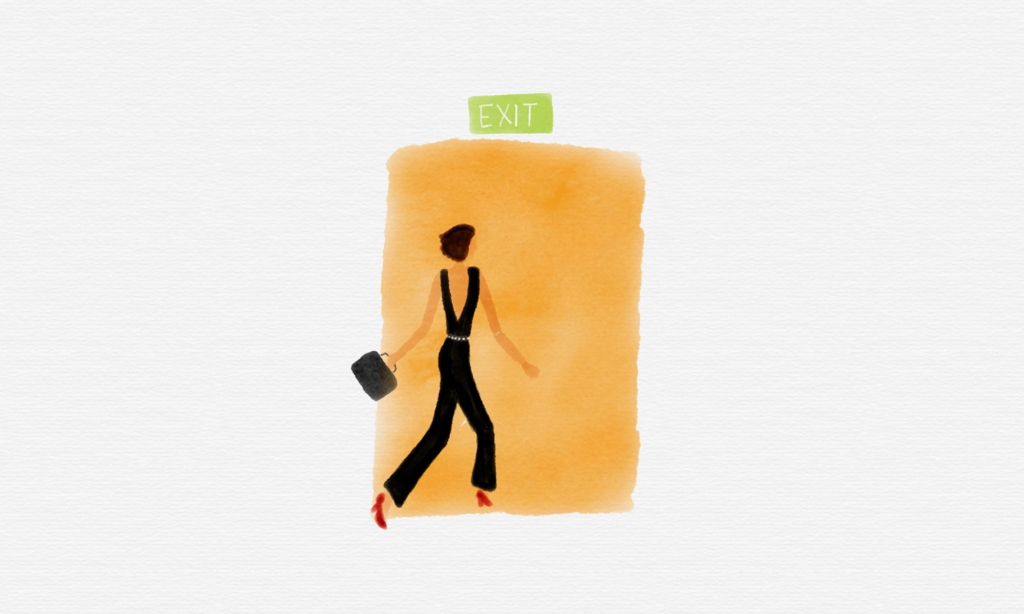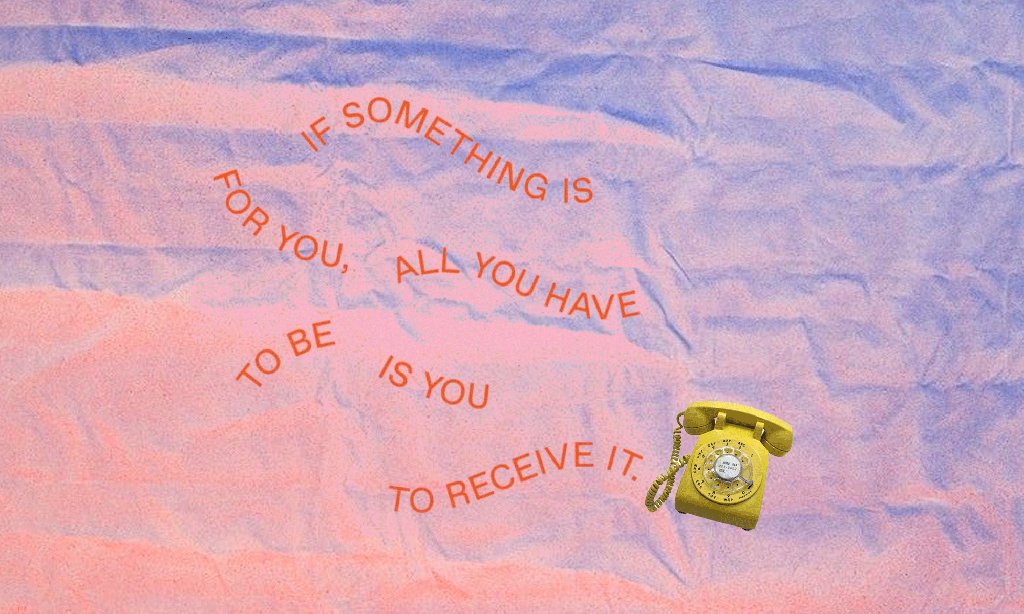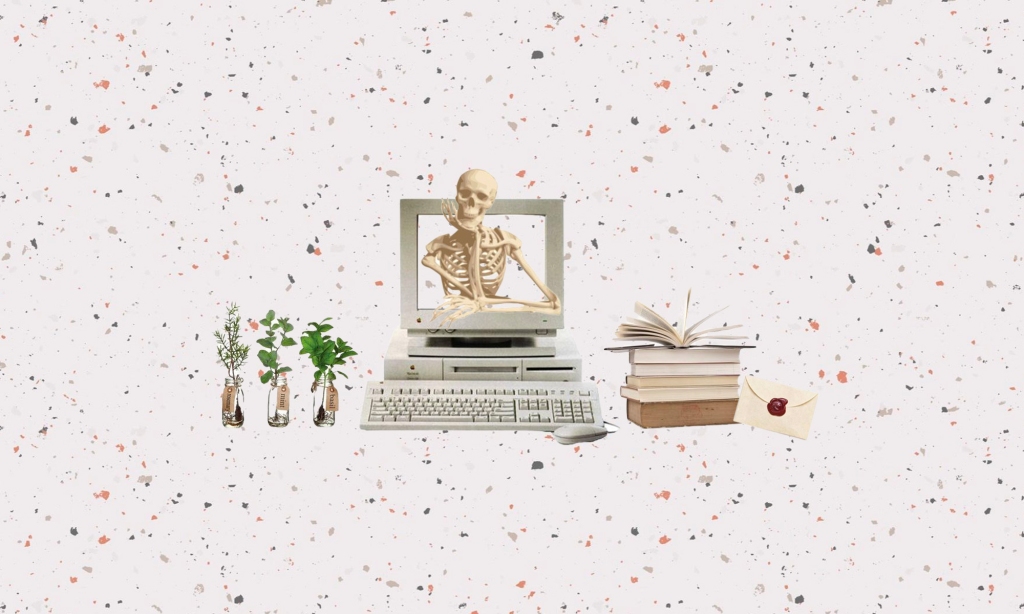Wildchild speaks to three young adults about the first full-time jobs that they held when they were fresh out of college to find out more about their experiences and the factors that culminated in their eventual decision to leave. Whether you are in a dilemma about quitting your first job or have been there and done that, we hope that you’ll be able to glean some insights from these young adults’ first job experiences.
Editor’s note: Yes, the pseudonyms are from the characters mentioned in the song “Betty” from Taylor Swift’s latest album, Folklore.
What made you leave? How did you feel before leaving?
Betty: Honestly, my first job was never something I was actively looking for. My sister’s friend introduced me to the role and I accepted the offer about two weeks after my last paper as I was worried I wouldn’t be able to land another job. Everyone around me was encouraging me to accept it as well as the company was big – actually, the largest – in the industry. I also knew that I could just leave after a year if I didn’t like it.
So I was constantly on the lookout for jobs in another industry I was more interested in. I applied for one, received an acceptance letter, and decided to leave my first job. This decision was not planned at all. In fact, I was really confused and contemplated a long time before handing in my resignation. Despite spending five months working from home, I found my ex-colleagues very nurturing, supportive, kind, and fun — I didn’t want to leave that behind. As my superiors were very patient with me, I felt like I was letting them down. But one of the factors that contributed to my choice to leave was definitely the lack of work-life balance.
James: I left because my work situation had been turning more toxic and COVID-19 exacerbated the situation. Making the decision to leave was extremely hard; I was torn for a few months. The pure economics of leaving during the pandemic only made it harder to actually go ahead with resigning but the critical point came when I felt there was no room for growth after my motivation for work had soured so badly. Professionally, I tend to throw myself into my work quite wholeheartedly and losing that intrinsic motivation was the final straw. Despite the hesitancy, I felt freer mentally after tendering my resignation. Admittedly, it took a couple of days of moping and worrying about financial responsibilities before I bounced back.
Inez: While I tendered my resignation rather impulsively, I had been toying with the idea for a while. I think I was more taken with the idea of my job than the job itself for it gave me access to an exclusive and desirable industry. My job scope was wider than expected and I was sorely lacking in the skills that were required. I did wonder if I should ride it out and wait for my hard work to pay off and translate into competency — the way everything falls into place for the protagonists in movies after toiling. But ultimately, I decided to call it quits because realistically speaking, such a moment may never arrive given the poor job fit. My choice to leave is predicated on an evaluation of my priorities. While the job gave me a foot in the door of a covetable industry, it didn’t help to hone the skills that I really wanted to develop for my career. At several points during my stint, I felt isolated, lonely, and thought of myself as a failure. That certainly contributed to my decision to leave as well.
What did you learn from the experience?
Betty: I learned that corporate life isn’t for me. Working from 9 a.m. to 3 a.m. with hardly any break – to eat or even to use my phone – really took a toll on me. I was constantly physically and mentally drained. Being able to go out was rare; being able to go out without working was a luxury. I was constantly on the phone, managing others who were involved in the projects. On my boyfriend’s birthday, we were at a buffet dinner but I had a work call throughout the meal.
James: I reflected a lot on the last few torrid months, wondering how the whole situation unraveled, and I must say I learned a lot from my first work experience. My tasks were extremely time-sensitive, so I was constantly working through the weekends. I was basically on call – and on edge – throughout my entire stint. There was little semblance of work-life balance, although there were periods where it would be quiet, followed by a torrent of issues that you had to cope with no matter how bad it got. That sense of instability at work really was not for me but I learned that there are people who glorify – be it explicitly or implicitly – this toxic lifestyle. They then promulgate this atypical work culture onto newcomers.
After riding out the respective work crises, I learned that many issues were not as critical as they were made out to be. Some bosses operated by overselling errors and micro-managing – though they would prefer to see themselves as “meticulous” or “detailed” – just because (i) bosses needed to see the work done and (ii) they believed that all the micro-pains suffered to deliver the work on time made a difference somehow to their own sense of self-worth. I don’t deny that (ii) is something we should value when working in a job but it came to a point where immense pressure and even occasions of mental abuse – thankfully, I did not experience this directly – were placed on the worker simply to deliver something favorable to bosses’ expectations rather than to impact the actual stakeholders at play.
I learned that occasionally, a healthy dose of skepticism is required to protect oneself. Too often I trusted my bosses’ intentions and agendas, and would get thrown under the bus as people flopped about to save themselves when something went awry — I don’t begrudge this entirely, given that some have worked to a point where their whole families and lives are at stake vis-à-vis their careers.
Inez: My first job taught me heaps about an industry that I knew nothing about and also, about myself. After trying multiple internships, I thought I didn’t want an office job. While I got what I wished for, I quickly realized that I actually needed some semblance of structure to work well and that I desired to belong to a community, one that I could count on and draw strength from in tough times.
While my mentor – a wise, older superior-turned-friend whom I looked up to – always told me to “fake it till I make it”, I didn’t learn its importance until my first job. It is hard to feign experience but the value of this truism lies in the importance of presenting oneself as competent. I was already doubtful about my abilities and my first mistake undermined my confidence. It went downhill from there and my subsequent mistakes altered others’ perceptions of me. In many ways, my poor performance was a self-fulfilling prophecy that quickly spiraled beyond my control. Thus, I am now determined to have a confident and positive mindset as far as possible, in order to avoid repeating history.
Do you have any regrets or wish that you had done anything differently?
Betty: Of course, I wished I was better at my job so I could have been more independent and avoided worrying anyone since we all have our own set of problems and crazy schedules. I don’t think I wish to change much about my experience — once again, I’m so thankful for my colleagues’ patience and support.
James: I regret not sticking up for myself more when certain bosses tried to make wild accusations or question my ethics, morals, or even my personality. I have always believed in just putting my head down and working hard, so I never wanted to play the optics game, which is an unfortunate necessity of our corporate times. Hence, I suffered accordingly, having lost favor with senior management.
Not least, I regret the time I wasted trying to psych myself into seeing the “importance” and “criticality” of the work, while my familial and personal lives suffered tremendously. I must admit it was extremely sobering when my family and friends were so encouraging of my decision to leave, even amidst the COVID-19 chaos.
Inez: As my educational background was not at all relevant to the industry, I was way out of my comfort zone and constantly felt like a fraud. I was given many valuable opportunities, such as attending major industry events, and I regret not doing more research and preparation to maximize my experience.
Was your first job life-changing in any way?
Betty: I wouldn’t say that it was life-changing but it really taught me a lot. This job made me realize that climbing the corporate ladder isn’t my cup of tea and that I derive fulfillment from being able to help others. Without a job that allows me to contribute back to society, I find myself constantly questioning my purpose in life.
James: I would not call it life-changing but it has definitely changed (i) my outlook on life and (ii) my outlook on work culture. My job was a rather atypical way to begin one’s professional working life, and I am still struggling to undo, review and reshape my work habits in the much more stable work environment that I have been blessed with now.
Inez: My first job was life-changing because it drastically altered my notions of self-concept and affected me in ways that I still can’t put into words. I still find myself thinking about it or the things I could’ve done differently, from time to time. Since I was so ill-suited for the position, it certainly opened my eyes to my weaknesses, and being aware of them has made me warier at work. Ultimately, my first job altered my course in life for it gave me the experience that I needed for the subsequent job that I landed.
Any advice, the sort you wished you had gotten, for anyone who might be in a similar position?
Betty: At the heart of the matter, you have to understand what you prioritize in a job. It doesn’t always have to be meaningful; you may like the rigor of the fast-paced corporate life. I would say that I’ve had great advice from my friends and family. Ask yourself, what is your goal, and will your first job bring you one step closer to it? Always write out the pros and cons of the job you’re in and think about how long you can continue working in your line of work.
James: My main piece of advice would be to find good colleagues and superiors to lean on for support and encouragement, it goes a very, very long way to making your work-life tenable. While searching for that community, a healthy dose of skeptical professionalism would also help safeguard against potential manipulation or abuse from others.
I wish I had thought about the polemics of idealism and pragmatism more when considering different jobs. With financial arrears (university loan) and idealism (marriage) in mind, I took a pragmatic jump at the first – seemingly viable – opportunity. But I was destroyed mentally after going through everything and eventually left. So at what cost to oneself can one take on a job for pragmatic reasons and for how long can they sustain this modality of living?
Ultimately, I wouldn’t say there are good or bad jobs. I would say there are good or bad colleagues/bosses. Bad jobs can be inherently bearable (and hence, somewhat good!) if the people are incredible, communal, and empathetic. I still believe the people are the ones who make or break the job experience, not the scope itself. No matter what craziness I waded through workload-wise, the worst hand I was dealt in this job was always the toxic boss who mismanaged without empathy.
Inez: I was wracked with indecision and anxiety in the moments leading up to my resignation. My mentor suggested that I listed the pros and cons to see if the latter were areas that I can work with or improve on; and if they relate to what I hope for in a career. It was and is salient advice that I took to heart. After I pulled the plug, I stumbled upon this helpful article about the questions you should ask yourself before quitting your job.
All I have to add is that if you decide to throw in the towel, remember to cast away the notion that quitting indicates weakness of character – “quitters never win, winners never quit!” – because ultimately, you need to do what’s best for yourself and you are the only one who can make that assessment.

Feature illustration by Chow Siew Yeng
For more articles like this, read our column about work and jobs.




Comments
3 responses to “3 Fresh Graduates in Singapore on Quitting Their First Jobs”
[…] this edition, we have a millennial who dreams of saving enough funds in order to quit her day job as early as possible — she wants to be able to pursue a more meaningful role that matches her […]
LikeLike
[…] I felt that day seemed insignificant compared to the uneasy apprehension that I felt today. I had quit my job before securing a replacement to explore other fields. After almost two months of interviews — I think I’d been to more than […]
LikeLike
[…] Quitting your first job sooner than expected is a decision that can have a destabilizing effect on graduates who thought they were ready to take on the world — one that can leave them disillusioned and full of self-doubt. […]
LikeLike